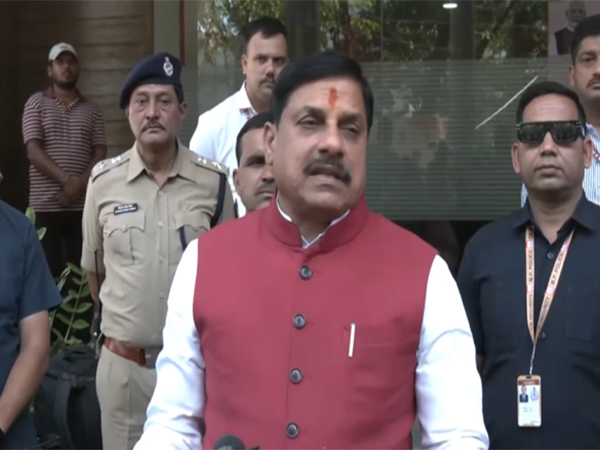Asian human rights forum addresses plight of Baloch, Sindhi, and Pashtun people
Oct 10, 2024

London [UK], October 10, : The World Sindh Congressheld a conference in the House of Commons today, focussing on gross human rights violations in Pakistan. The event was hosted by Honourable Carla Lockhart, Member of Parliament for Upper Bann, Northern Ireland, in Committee Room 16.
Arif Aajakia, human rights defender and executive director of the Asian Human Rights Forum, moderated the conference. He emphasised that no country has ever been created solely based on religion, yet Pakistan was established as a religious state emerging from India, with the decision made in the very building where the conference took place. Aajakia called for the British and U.S. governments--major supporters of Pakistan's military--to ensure the restoration of fundamental human rights in the country.
Highlighting the dire human rights situation, Aajakia invited British journalist David Vance to speak as the first presenter.
Mehran Balouch, a human rights advocate and representative from Balochistan, followed as the second speaker. He painted a grim picture of Balochistan, claiming that the military from Punjab was plundering its resources. Balouch stated, "Genocide of the Baloch people is occurring, with thousands reported as missing. Abductions, torture, and extrajudicial killings of Baloch individuals have become commonplace." He asserted that Balochistan, rich in natural resources, has been forcibly occupied by the Punjab military and vowed, "We were never a part of Pakistan, and we will continue to fight for our freedom."
Balouch also recounted his own experiences of human rights violations, including his arrest at Geneva Airport in 2016 at Pakistan's request while attending the United Nations Human Rights Council. He criticised Switzerland for its treatment of dissenters, questioning how a country that fails to uphold freedom of speech can host a leading human rights institution.
Dr. Shabir Chaudhry, a Kashmiri leader from Pakistan-Occupied Jammu and Kashmir (PoJK), discussed the historical context of the region during British rule and the current human rights situation.
He noted that despite a "standstill agreement," Pakistani rulers launched a military operation in 1947, resulting in the deaths of tens of thousands of innocent citizens. Chaudhry recalled that in Baramulla, only 3,000 of 14,000 inhabitants survived the violence, describing the brutalisation of women and the looting of property.
Dr. Lakhumal Luhana, General Secretary of the World Sindhi Congress, provided an overview of the situation in Sindh, presenting alarming statistics on the exploitation of the region's wealth and natural resources by the Punjabi military. Luhana emphasised the rich resources of Sindh, including natural gas and oil, and raised concerns over the systematic radicalisation of Sindh's society.
Roshaan Khattak, a Pashtun nationalist, detailed the plight of Pakistan's Pashtuns, arguing that they have been the primary victims of terrorism orchestrated by the Punjabi military. He noted that while various militant groups operate freely, grassroots movements like the Pashtun Tahafuz Movement (PTM) face suppression. Khattak called for international attention to the human rights violations faced by Pashtuns, including forced abductions and extrajudicial killings.
In his concluding remarks, Arif Aajakia expressed hope that British and international authorities would address the suffering of the Sindhi, Baloch, and Pashtun peoples, whose lands are under military control.
He urged support for these communities in their pursuit of civil, political, economic, social, and cultural rights, particularly their right to self-determination.




















